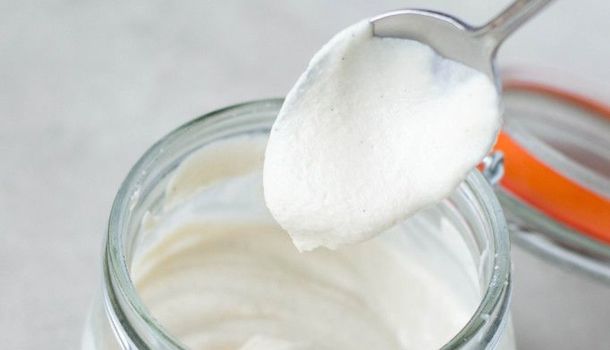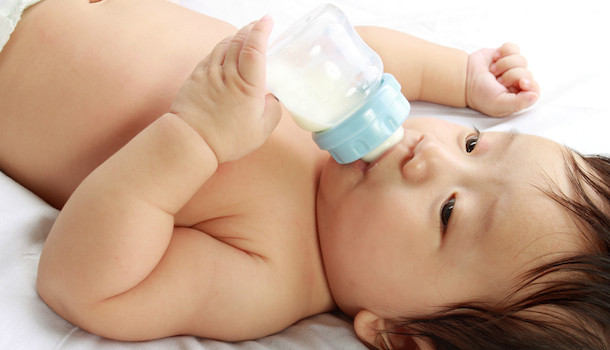
Have you ever wondered, “Are probiotics a good idea?” or “Do they actually do anything?” Our microbiology expert Ellen Loveday is here to give you the skinny on these good-for-the-gut bacteria!
Probiotics are found in most supermarkets, chemists and even doctor’s surgeries. Health professionals often recommend supplementing a little one’s diet with a probiotic after a dose of strong antibiotics or after a severe dose of gastritis. But what do they actually do?
Biological Facts
Healthy digestive systems have a barrier of positive bacteria (Microflora). The jobs they do are specific to their designated areas. Bacteria assist with digestion and immune functions; for instance, Lactobacilli inhibit the invasion of nasty bacteria ingested and fill all the available space in the pili of our intestines, leaving no available pili for the nasty bacteria to use as their way into our system. Without adequate numbers, opportunistic bacteria can overgrow and create illness. This is where Probiotics come to the rescue.

Probiotic bacteria vary in varieties and strains, but the most common are Lactobacillus acidophilus, Bifidobacterium infantis and Saccharomyces boulardii. The most popular bacteria used in yoghurt probiotics are Lactobacillus; Yakult is a popular example.
Studies have shown many positive consequences to taking Probiotics. Good bacteria in our digestive system do all of the following:
- Help us absorb vitamins and minerals from food.
- Help balance water in the gut.
- Produce toxins that kill pathogen bacteria.
- Give our system a boost of Vitamin B when they expire.
- Reduce levels of inflammation.
- Protect against immune dysfunction.
Probiotics increase the levels of good bacteria into our gut system. This is an easy solution to reduce the side effects of antibiotic treatment, decrease irritable bowel symptoms, reduce the rate of skin infections, lessen diarrhea bouts, and decrease urinary tract infections.
Surprisingly, the major factors in the development of eczema are high inflammation and immune dysfunction. There are some studies that link probiotics to the reduction of symptoms and duration of eczema. In 2008, the American Journal of Clinical Dermatology gave indications that probiotics give some benefit to Atopic Dermatology, even from birth.

The benefits are not at the point where you should supplement Probiotics for traditional treatment options, but they can reduce the severity or occurrence rates of an eczema outbreak in children.
Infants are born with limited natural bacterial intestinal flora. When we start to introduce solid foods their intestinal flora grows. Studies have shown little difference in the benefits in Probiotics prior to 5-6 months of age, but once the introduction of solids starts, it is useful to boost the development of a healthy gut. Increasing the gut flora helps reduce inflammatory illness and intestinal discomfort for little ones.
Supplementing babies with probiotics can be done with a powdered probiotic dissolved into food, formulae/breast milk, or a specially formulated infant yoghurt probiotic. Recommended doses are more than 5 billion CFU per day for children, and more than 10 billion CFU per day for adults. (CFU = Colony Forming Unit per milliliter. One CFU is equal to 1 live bacterium.)
Digestive health and Immune strength are important to our health and the two complement each other. Healthy gut ecology is so important in protecting our bodies from nasty pathogens, and Probiotics are a helpful supplement for those people who suffer from immune deficiencies, as they provide additional positive bacteria that protect our digestive system. It is definitely beneficial to add Probiotics to your child’s diet as a supplement, mamas!
Lead image sourced via Pinterest, Image #1 sourced via Pinterest, Image #3 sourced via Shutter stock
Reference
About.com Medical Review Board. (2014) Probiotics for Eczema. Internet site. Last cited: 23/11/2014. Available: www.altmedicine.about.com/od/skinconditions/a/Probiotics-For-Eczema.htm
Kligler, Cohrssen. (2008) Probiotics. American Family Physician. Nov 1;78(9):1073-1076. Internet site. Last cited: 2/12/2014. Available: www.aafp.org/afp/2008/1101/p1073.html
Olson (2006). Understanding Intestinal Bacteria – The Gut Ecology. Puristat – Digestive Wellness Centre. Internet site. Last cited 23/11/2014. Available: www.puristat.com/coloncleansing/gutbacteria.aspx
Young, Huffman (2003) Probiotic Use in Children – Intestinal Flora. J Pediatric Health Care 17(6), Medescape. Internet site: Last cited 2/12/2014. Available: www.medscape.com/viewarticle/464550_2
WebMD (2013) Probiotics – Topic Overview, WebMD. Internet Site. Last sighted: 23/11/2014. Available: www.webmd.com/digestive-disorders/tc/probiotics-topic-overview






 View All
View All





 View All
View All









 View All
View All







